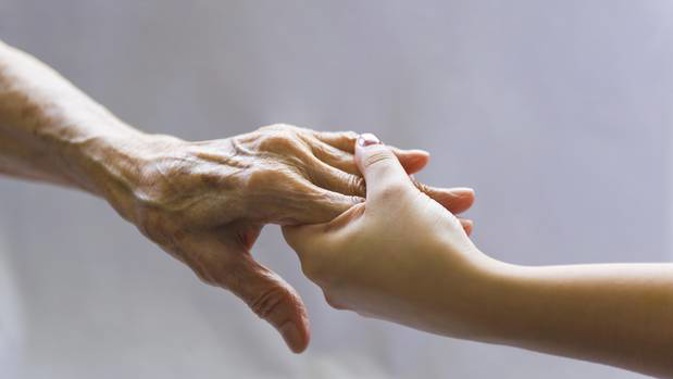
Maggots were found crawling in an elderly man's wound at a rest home, an investigation has confirmed.
The horror case has prompted renewed calls for Government action, with concerns current oversight isn't picking up problems and leaving the vulnerable in appalling conditions.
Counties-Manukau District Health Board in March launched an investigation into Palms Lifecare in Pukekohe.
A family had complained, saying their terminally-ill relative was often left covered in flies and had maggots crawling in open wounds.
Results of the investigation released to the Herald
show five areas of concern about the now-deceased resident's care were substantiated.
This included shortcomings in providing pain relief, "presence of maggots in the wound", anecdotal evidence of faecal soiling in the man's room, and issues with managing falls.
"The recent incident involving a resident at Palms Lifecare in Pukekohe was serious and we extend our thoughts to the family," a DHB spokeswoman said.
The health board is now working with the rest home and said it was confident recommended changes are being made. Asked if residents were safe, the spokeswoman said they were.
"Counties Manukau Health is satisfied that the Palm's team has treated the issues seriously and their leaders have taken the immediate steps necessary to ensure they provide safe care to their residents. We will continue to monitor and support the Palms to fully implement all the agreed actions to ensure quality care."
The man's daughter had called into talkback on Radio Live in March, saying he had maggots underneath his toes, and there was an overwhelming smell in his room because faeces hadn't been cleaned up.
There were no beds available at other facilities and the family did their best, including visiting often and asking staff to improve care. Their father would moan in pain but only paracetamol was given, she said: "I kept saying to them, 'This is not okay, he's not dead yet.'"
Documents released under the Official Information Act reveal Palms Lifecare, which has over 100 rest home and hospital beds, was subject to another investigation in August last year after a complaint.
Investigators could find no evidence of care plans to evaluate skin tears suffered by residents, and "sheets were bloodstained overnight, due to skin tear".
Continence assessments weren't carried out often enough, and there was a lack of activities for residents - with a staffer telling the complainant she "had too much paperwork to undertake the activity programme".
David Renwick, executive chairman of Heritage Lifecare, the owners of Palms Lifecare and 25 other rest homes, said they had met several times with the family whose complaint caused the March investigation. A formal apology had been given.
Asked whether the wound care failing was the result of staffing levels or a lack of training, Renwick said it wasn't, "however we acknowledge that this particular problem should have been identified and remedied earlier".
Renwick said Palms residents were well cared for, and a corrective action plan developed by the company was being implemented, with DHB oversight.
A Herald investigation into the aged care system reviewed audit reports for the country's 651 facilities found serious and repeated problems, with a third having recent shortcomings related to resident care.
In total, 14 per cent of homes – almost 100 facilities – had recent and significant shortfalls directly related to pressure injury and wound care. Residents had deep and festering bedsores untreated, with deaths from septic shock in the worst cases.
Jessica Wilson, Consumer NZ's head of research, said the Palms case showed the auditing system wasn't good enough. That meant residents could be left to suffer unless a complaint was acted upon.
The last published audit report for Palms Lifecare was in June 2017, with no shortfalls identified.
"These basic failures in care should be picked up. It shouldn't rely on the family member having to go through a process in making a complaint," Wilson said.
Consumer, Age Concern and Grey Power are among those calling for voluntary care guidelines, which include staffing ratios, to be made mandatory – something Labour supported in Opposition.
The Herald has highlighted issues at rest homes including a lack of food and incontinence supplies, unsafe staffing levels and dementia patients restrained in chairs all day with minimal movement or repositioning.
Wilson said such cases underlined the need for an inquiry into the sector and a close look at the standards homes currently have to meet.
"The continual problems that are coming out show [the standards] are clearly not adequate."
Associate Health Minister Jenny Salesa, recently handed responsibility for the sector, said the case, and any other failure of care was very concerning for her and the ministry.
"We take these issues seriously. Residents and their families need to feel confident that the ministry does take their care seriously and will act swiftly on any issue or complaints," Salesa, MP for Manukau East, said in a statement.
Questions on whether the Government would implement policy held by Labour going into the election, including establishing an Aged Care Commissioner, weren't answered.
However, Salesa said a review of mandatory Health and Disability Service Standards which rest homes are audited against had started.
Election policy
Ahead of the last election Labour and the Green Party held an inquiry into aged care with Grey Power, and recommended reforms. These have not been committed to by the new Government. They include:
• Set up an Aged Care Commissioner.
• Investigate how effective the process is for complaints about aged care facilities.
• Look at establishing a government-backed system to star rate rest homes.
• Make voluntary care guidelines mandatory, including on staffing ratios.
• Review the funding model and make sure contracts with rest home companies include robust performance requirements.
Take your Radio, Podcasts and Music with you








